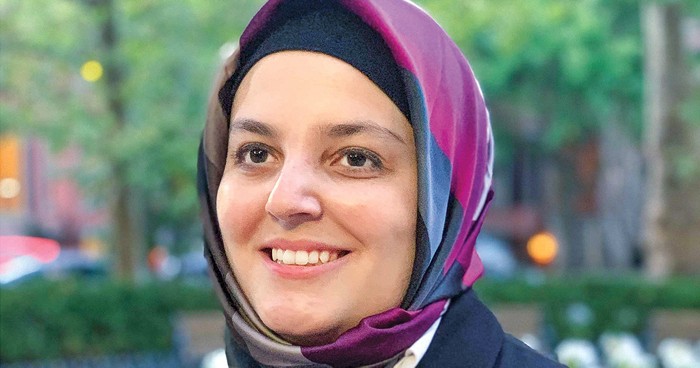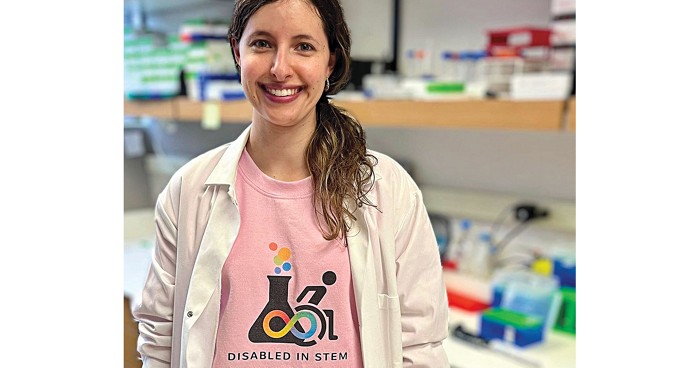Advertisement
Grab your lab coat. Let's get started
Welcome!
Welcome!
Create an account below to get 6 C&EN articles per month, receive newsletters and more - all free.
It seems this is your first time logging in online. Please enter the following information to continue.
As an ACS member you automatically get access to this site. All we need is few more details to create your reading experience.
Not you? Sign in with a different account.
Not you? Sign in with a different account.
ERROR 1
ERROR 1
ERROR 2
ERROR 2
ERROR 2
ERROR 2
ERROR 2
Password and Confirm password must match.
If you have an ACS member number, please enter it here so we can link this account to your membership. (optional)
ERROR 2
ACS values your privacy. By submitting your information, you are gaining access to C&EN and subscribing to our weekly newsletter. We use the information you provide to make your reading experience better, and we will never sell your data to third party members.
Diversity
LatinXChem virtual conference showcases Latinx science
Celebration of research included a Twitter poster session and week of webinars
by Linda Wang
September 24, 2020

Latinx scientists from around the world took to Twitter earlier this month to showcase the richness of their research as part of the first LatinXChem virtual conference. More than 1,100 scientists participated in a Twitter poster session on Sept. 7, followed by a dozen webinars during the week of Sept. 14. The poster session highlighted research in 11 categories, each with its own hashtag for searchability, such as #LatinXChemAnalytical and #LatinXChemEdu.
Webinar speakers included Héctor D. Abruña of Cornell University, Cassiana Montagner of the Universidade Estadual de Campinas, Galo Soler-Illia of the Universidad Nacional de San Martín, and Monica Olvera de la Cruz of Northwestern University. Chemistry Nobel Laureate Frances Arnold presented the closing webinar on innovation by evolution.
“This first LatinXChem event was a turning point not only on how to exchange and discuss research results among Latin American chemists, but also in terms of diversity and inclusion,” says Miguel A. Méndez-Rojas of the Universidad de las Américas Puebla, who is a cofounder of LatinXChem. “LatinXChem has catalyzed the formation of a strong and united Latin American community,” he says.
The idea for the LatinXChem virtual conference was inspired by the Royal Society of Chemistry’s #RSCPoster Twitter Conference. “It’s a very simple idea, and it allows students to share their research,” says Gabriel Merino of Cinvestav Mérida, who is a cofounder of LatinXChem.
The American Chemical Society was among the dozen sponsors of LatinXChem. “This conference is one of the few positive things that have come out of the pandemic,” says ACS President Luis Echegoyen, who presented the ACS Presidential Award for best poster overall to Jessica Arcudia, a graduate student at Cinvestav Mérida, and Ana Cristina García Alvarez, a graduate student at the Universidad Nacional Autónoma de México.
Saúl Utrera Barrios, a postdoc at the Institute of Polymer Science and Technology at the Spanish National Research Council, received a prize sponsored by the Royal Society of Chemistry for the most popular poster determined by number of likes and retweets. Winners were also selected in each of the 11 categories.
The beauty of LatinXChem is that it is a grassroots effort by the Latinx community for the Latinx community, says Luciana G. de Oliveira, a professor of organic chemistry at the Universidade Estadual de Campinas and one of the conference organizers. Latin American scientists, especially students, often do not have funding to travel to international conferences, so this virtual conference, which was free and open to the public, helped increase accessibility and inclusivity, she says.
“I feel like the conversations were so rich and so layered because people have a chance to think, look up some resources, and offer them up as part of the conversation.” says Maria Gallardo-Williams, a teaching professor at North Carolina State University and an organizer of the chemistry education division for LatinXChem. “People were hungry to have this discussion and this conversation, and we were speaking English and Spanish and Portuguese, and going back and forth.” Gallardo-Williams anticipates that many collaborations will come out of interactions catalyzed by LatinXChem.
For students, participating in LatinXChem meant being able to present their research to a global audience. “The experience was fabulous,” says Edwin Bonilla, an undergraduate student of chemistry at Universidad de Pamplona. “As a future researcher I want to show my work in different scientific meetings. These are enriching experiences that contribute to my academic profile.”
“Navigating with the different hashtags of the event I was able to discover many interesting works and ask questions that were satisfactorily answered,” says Gisell Valdés Muñoz, a master’s student at the Universidad Autónoma del Estado de Morelos. “This participation was very important as a student in Mexico because it was my first opportunity to use Twitter in this way. Also, I met some famous Mexican investigators.”
Josseline S. Ramos-Figueroa, who is from Peru, says she is one of only a handful of graduate students from Latin America in her chemistry department at the University of Saskatchewan, and there are no current Hispanic faculty. Participating in this virtual conference made her feel less isolated, especially during the pandemic. And it gave her an opportunity to interact with Latinx professors from around the world. Ramos-Figueroa won first place in the #LatinXChemBio category.
The Twitter format encourages scientists to be more creative in how they presented their work, says María-Eugenia Llases, an industrial chemist in Argentina, who presented a poster during the conference. “I think that we are going to improve with time the way we’re presenting our research online,” she says.
Advertisement
Oliveira says the participation in LatinXChem far exceeded the organizers’ expectations, and they are already making plans for next year’s conference. “We want to keep it going,” she says.
Editor's note: C&EN has deleted a comment because it did not align with ACS's core value of diversity, inclusion, and respect. Commenting has been disabled.




Join the conversation
Contact the reporter
Submit a Letter to the Editor for publication
Engage with us on Twitter